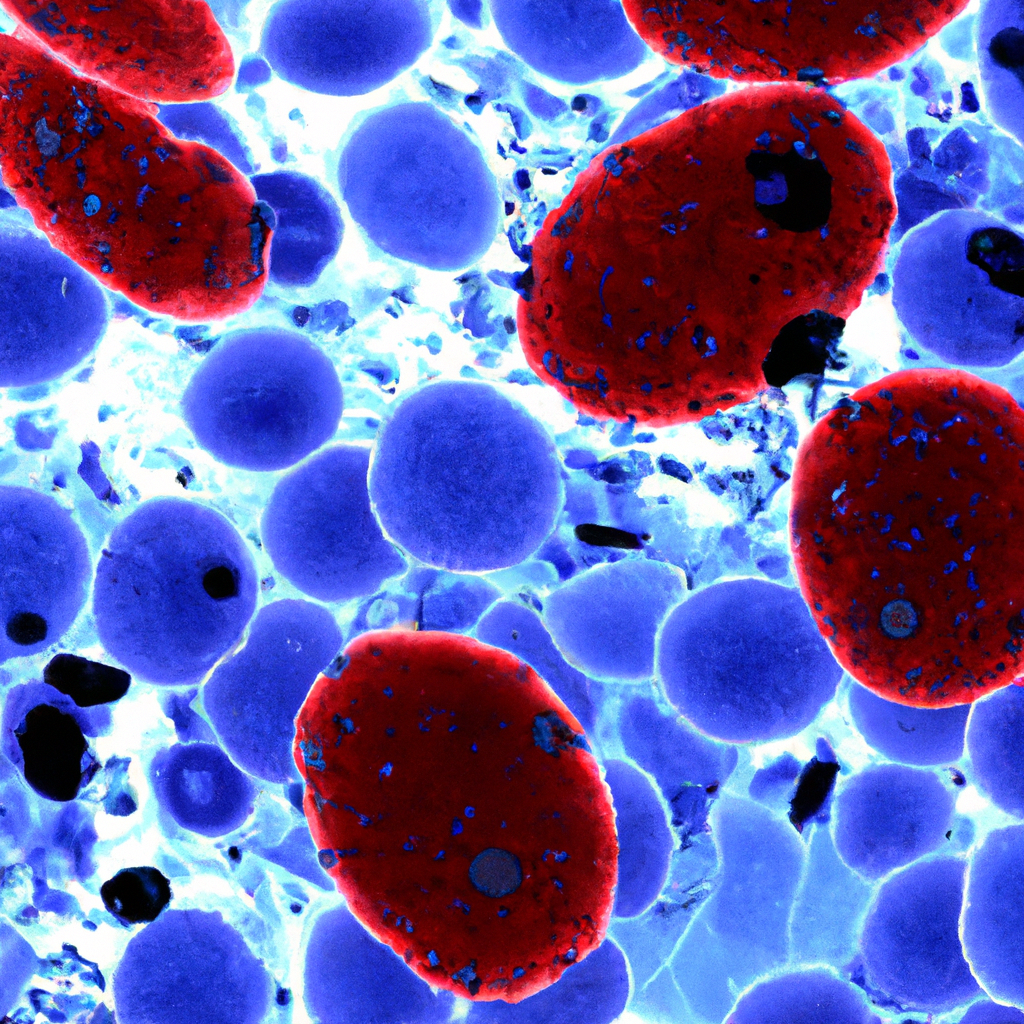If you’re interested in maintaining a healthy cardiovascular system, then nitric oxide is a molecule you should know about. Nitric oxide helps regulate blood flow by relaxing the smooth muscles that line your blood vessels, which allows for increased circulation and improved oxygen delivery to your tissues.
This vital link between nitric oxide and blood vessels has important implications for overall health and wellbeing. But what affects nitric oxide production? And how can you increase your levels of this important molecule?
In this article, we’ll explore the role of nitric oxide in regulating blood flow, the factors that affect its production, the health benefits associated with optimal levels, and methods for boosting it naturally. We’ll also discuss potential risks and side effects of nitric oxide supplementation so that you can make informed decisions about your cardiovascular health.
Key Takeaways
- Nitric oxide plays a crucial role in regulating blood flow by causing smooth muscle cells to relax and promoting vasodilation, which allows for better circulation of oxygen-rich blood throughout the body.
- Endothelial dysfunction can cause reduced vasodilation and narrowed blood vessels, leading to cardiovascular problems, including high blood pressure and other cardiovascular issues.
- Factors affecting nitric oxide production include exercise and L-arginine-rich foods, which can increase production, while smoking, high cholesterol, and hypertension can negatively affect production.
- Lifestyle changes, such as exercise and a balanced diet, can support healthy levels of nitric oxide production, which can improve circulation, heart health, exercise performance, and brain function. Nitric oxide supplementation may offer benefits but should be taken following recommended dosage guidelines and after consulting with a healthcare professional.
The Role of Nitric Oxide in Regulating Blood Flow
Nitric oxide plays a crucial role in controlling blood flow by causing the smooth muscle cells surrounding blood vessels to relax, allowing for increased circulation.
Endothelial dysfunction is a condition where the cells lining the inner walls of blood vessels lose their ability to produce sufficient amounts of nitric oxide. This leads to reduced vasodilation and narrowed blood vessels, which can result in high blood pressure and other cardiovascular problems.
Vasodilation refers to the widening of blood vessels, which allows for better circulation of oxygen-rich blood throughout the body. Nitric oxide is responsible for triggering this process by relaxing the smooth muscles surrounding blood vessels. This allows for increased flow of oxygenated blood to areas that need it most, such as organs and tissues during physical activity or exercise.
Nitric oxide plays an essential role in regulating blood flow by promoting vasodilation through relaxation of smooth muscle cells surrounding blood vessels. Endothelial dysfunction can impair this process, leading to reduced circulation and an increased risk of cardiovascular problems. Therefore, maintaining healthy levels of nitric oxide production is crucial for optimal cardiovascular health.
Factors Affecting Nitric Oxide Production
You can boost the creation of the essential molecule, nitric oxide, by consuming foods rich in L-arginine. Some examples of dietary sources include almonds and avocados. L-arginine is an amino acid that’s necessary for the production of nitric oxide in our bodies.
Additionally, exercise routines have been shown to increase nitric oxide production in the body. When we exercise, our blood vessels dilate and more blood flows through them. This increased flow triggers the release of nitric oxide from the endothelial cells lining our blood vessels.
It’s important to note that other factors such as smoking, high cholesterol levels, and hypertension can all negatively affect nitric oxide production in our bodies. By making changes to your lifestyle such as incorporating regular exercise and eating a balanced diet with plenty of L-arginine-rich foods, you can help support healthy levels of nitric oxide production and maintain optimal cardiovascular health.
Health Benefits of Optimal Nitric Oxide Levels
Achieving optimal levels of nitric oxide in the body can lead to numerous health benefits. Nitric oxide plays a crucial role in improving circulation and heart health by relaxing the blood vessels, allowing for better blood flow throughout the body. This also helps reduce blood pressure and lower the risk of cardiovascular disease.
Another important benefit of optimal nitric oxide levels is enhanced exercise performance. Nitric oxide helps increase oxygen delivery to muscles, which can improve endurance and delay fatigue during physical activity. Additionally, it aids in muscle recovery post-exercise by increasing nutrient delivery to damaged tissues.
Lastly, nitric oxide has been shown to have positive effects on brain function. It helps regulate blood flow to the brain and promotes neuroplasticity, which is essential for learning and memory retention.
The sources of nitric oxide include foods rich in nitrates such as beets, leafy greens, and citrus fruits or through supplementation with products like L-arginine or beetroot powder. Therefore, achieving optimal levels of nitric oxide is crucial for overall health and wellbeing.
Methods for Increasing Nitric Oxide Production
Boosting your body’s nitric oxide levels is like adding high-octane fuel to a race car, providing the necessary power and endurance for optimal performance. There are several ways to increase nitric oxide production, including:
Exercise: Physical activity stimulates the release of nitric oxide from blood vessels and increases its bioavailability.
Dietary sources: Certain foods contain compounds that boost nitric oxide production, such as beets, spinach, garlic, and dark chocolate.
Nitrate supplements: Nitrate supplements provide the body with a precursor to nitric oxide production and have been shown to improve exercise performance in athletes.
Citrulline supplements: Citrulline is an amino acid that can increase nitric oxide levels by promoting its synthesis in the body.
Adding these methods to your daily routine can help you maintain optimal nitric oxide levels and reap its health benefits. Whether you choose to incorporate dietary sources or take supplements, make sure to consult with a healthcare professional before making any changes to your diet or exercise regimen.
Potential Risks and Side Effects of Nitric Oxide Supplementation
Taking nitric oxide supplements may come with potential risks and side effects that should be carefully considered before use. Although nitric oxide is naturally produced in the body, supplementing with high doses can lead to negative effects.
One of the most common side effects of nitric oxide supplementation is headaches. This occurs because nitric oxide causes blood vessels to dilate, which can result in increased blood flow and pressure in the brain.
In addition to headaches, long term use of nitric oxide supplements may have other negative effects. For example, excessive amounts of nitric oxide can cause a decrease in oxygen levels within the body’s tissues. This can lead to tissue damage or even death if left untreated.
Therefore, it’s important to follow recommended dosage guidelines when using nitric oxide supplements. Dosage considerations are crucial when it comes to using nitric oxide supplements safely and effectively. It’s important not to exceed the recommended dosages as this could lead to unwanted side effects.
Additionally, individuals who suffer from low blood pressure or heart problems should consult their doctor before using any form of nitric oxide supplement as they may exacerbate these conditions.
Overall, while taking nitric oxide supplements may offer some benefits for improving cardiovascular health and athletic performance, it’s essential to weigh potential risks and side effects before incorporating them into your daily routine.
Conclusion
So there you have it, nitric oxide is a vital link in regulating blood flow and maintaining overall health. But how can you ensure optimal levels?
Well, first off, make sure to get enough exercise as this boosts nitric oxide production. Additionally, eating a diet rich in foods like beets, spinach, and garlic can also help increase levels.
However, before jumping on the nitric oxide supplement bandwagon, make sure to consult with your healthcare provider as there are potential risks and side effects associated with supplementation.
With some simple lifestyle changes though, you can naturally boost your nitric oxide levels and enjoy the many health benefits that come along with it. So go ahead and take charge of your vascular health today! And remember, sometimes all it takes is a little NO-magic to keep things flowing smoothly.


